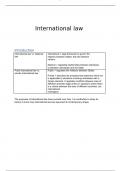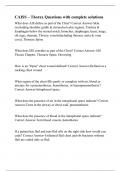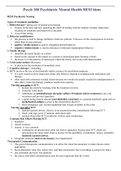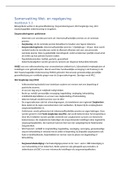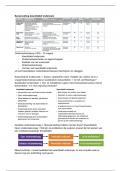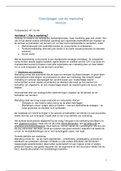Samenvatting
Volledige samenvatting 'International Law'
- Instelling
- Katholieke Universiteit Leuven (KU Leuven)
- Boek
- International Law
Volledige samenvatting van het boek 'International law' van Professor Gleider Hernandez aan de KULAK. De samenvatting is geschreven in het Engels De belangrijkste en moeilijkste woorden/zinnen zijn evenwel vertaalt naar het Nederlands.
[Meer zien]
